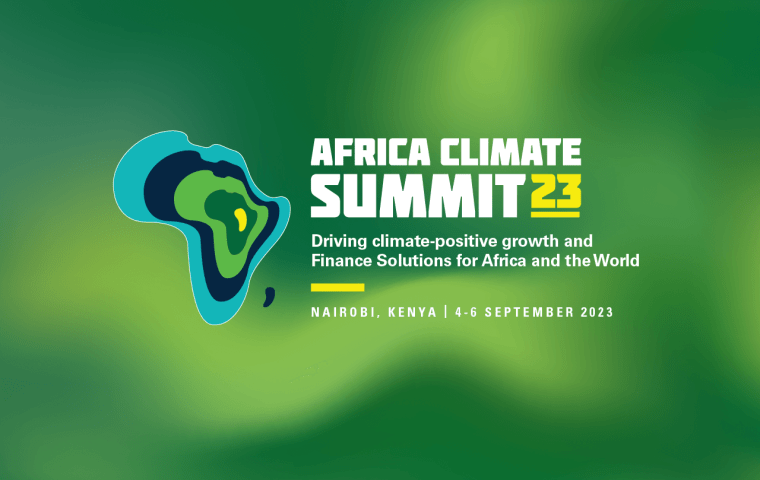Published
1 year agoon

South Africa has assumed the chairmanship of the Africa Green Hydrogen Alliance (AGHA) at the inaugural Africa Climate Summit (ACS) in Nairobi, Kenya.
The AGHA was formed in May 2022 by six African countries – Egypt, Kenya, Mauritania, Morocco, Namibia, and South Africa – to drive decarbonisation through green hydrogen.
Green hydrogen is produced using renewable energy, such as solar and wind power, to split water molecules into hydrogen and oxygen. It is a clean and emissions-free fuel that can be used to power vehicles, heat homes, and generate electricity.
The AGHA aims to intensify collaboration and supercharge the development of green hydrogen projects on the African continent. It will focus on public and regulatory policy, capacity building, financing, and certification needs to mobilise green hydrogen production for domestic use and export.
South Africa is a major producer of renewable energy and has a strong industrial base. It is well-positioned to become a leading exporter of green hydrogen.
Minister in the Presidency for Electricity, Dr Kgosientsho Ramokgopa, said that he will use the chairmanship to advance the green hydrogen agenda on the continent.
“I will work with my colleagues in the AGHA to create an enabling environment for the development of green hydrogen projects,” he said. “I will also promote peer to peer learning, technology transfer, and economic and employment opportunities.”
The inclusion of Ethiopia and Angola as new members of the AGHA was also announced at the ACS. This is a significant milestone for the alliance, as it brings together more countries committed to decarbonisation through green hydrogen.
The ACS was a major opportunity for African countries to come together and discuss how to address the climate crisis. The AGHA is a key part of the solution, and South Africa is proud to be playing a leading role in its development.
Here are some additional details about the AGHA:
The AGHA is a significant step forward in the development of green hydrogen on the African continent. With the support of the alliance, Africa can become a major player in the global green hydrogen market.
Commentary by Mr. Tafadzwa Ganyanhewe, Stakeholder of the JCCI Youth Commission
South Africa’s assumption of the chairmanship of the Africa Green Hydrogen Alliance (AGHA) is a step in the right direction. The country has secured a $1 billion green fund, which is a catalyst for green hydrogen projects in the country to be energy secure.
Mr. Tafadzwa Ganyanhewe, a stakeholder of the JCCI Youth Commission, said that the AGHA is a major opportunity for African countries to come together and discuss how to address the climate crisis. He added that South Africa is well-positioned to become a leading exporter of green hydrogen.
“The AGHA is a significant step forward in the development of green hydrogen on the African continent,” said Mr. Ganyanhewe.
“The AGHA is a positive development for the African continent,” said Mr. Ganyanhewe. “It is a step in the right direction towards a cleaner and more sustainable future.”
In addition to the green fund, South Africa also has a number of other advantages in the green hydrogen sector. The country has a strong renewable energy industry, with a significant capacity for solar and wind power. It also has a well-developed manufacturing sector, which can be used to produce the equipment needed for green hydrogen production.
Another advantage for South Africa is the presence of companies like Mitochondria Energy Company. Mitochondria is an “energy solutions” enterprise headed by Mr. Mashudu Ramano, which has made significant strides in the green hydrogen sector. The company has developed a number of innovative technologies for the production and storage of green hydrogen.
With these advantages, South Africa is well-positioned to become a leading player in the global green hydrogen market. The AGHA chairmanship will provide the country with a platform to promote its green hydrogen initiatives and to collaborate with other African countries on the development of this promising technology.
Massive House Hijacking Scandal Unfolds: Lawyer Joshua Apfel and Compeg Management Accused of Illegally Seizing Properties
Botswana’s Turning Point: Voters Embrace New Leadership for a Bold Future
Decaying Rule of Law in South Africa: Public Power Abuse Threatens Investment Climate
Growing Scandal: Councillor Joshua Apfel Accused of Orchestrating Mass Dispossession of Black Homeowners in Johannesburg
Reclaiming Zimbabwe: A call to transform Zanu PF from within
The Challenge of Pushing Forward Amidst Unambitious Mindsets: Lessons in Resilience, Vision and Self-Motivation
Warning: Undefined variable $user_ID in /home/iniafrica/public_html/wp-content/themes/zox-news/comments.php on line 49
You must be logged in to post a comment Login